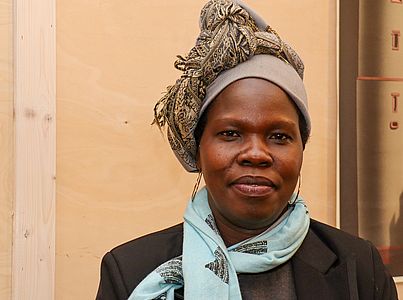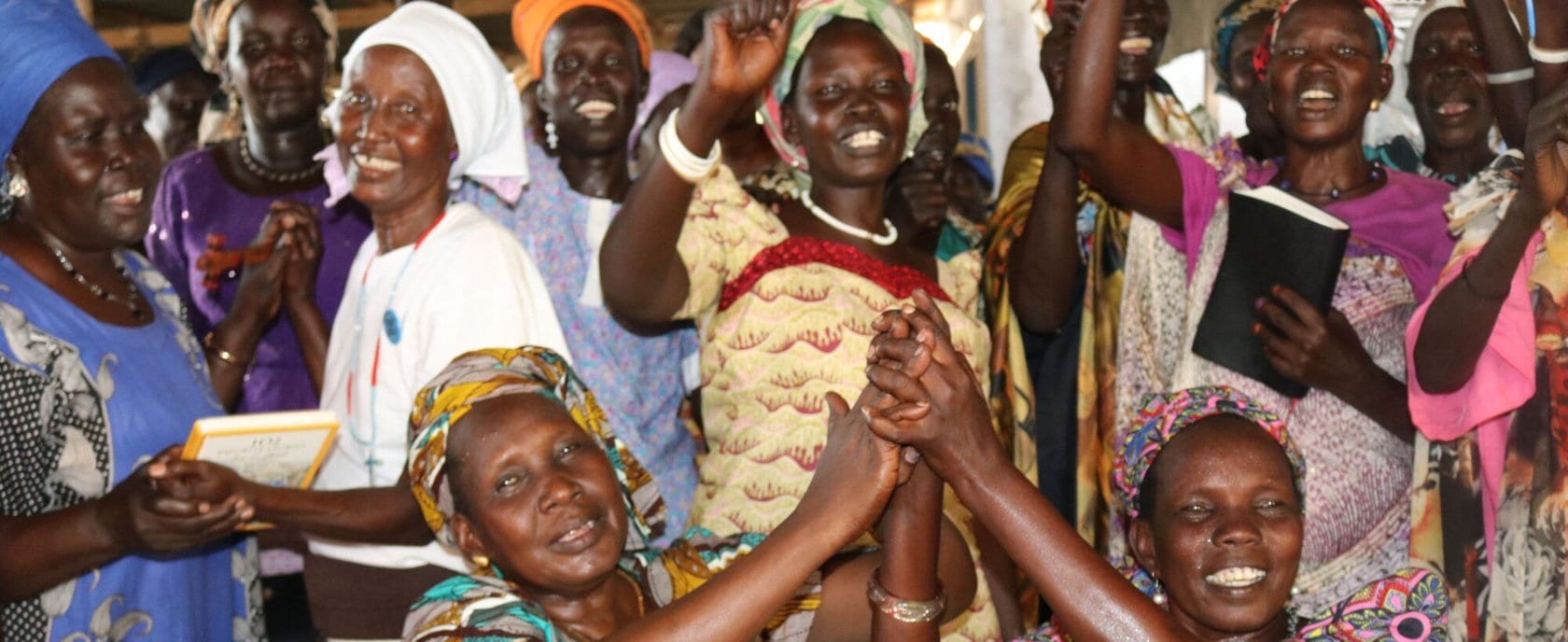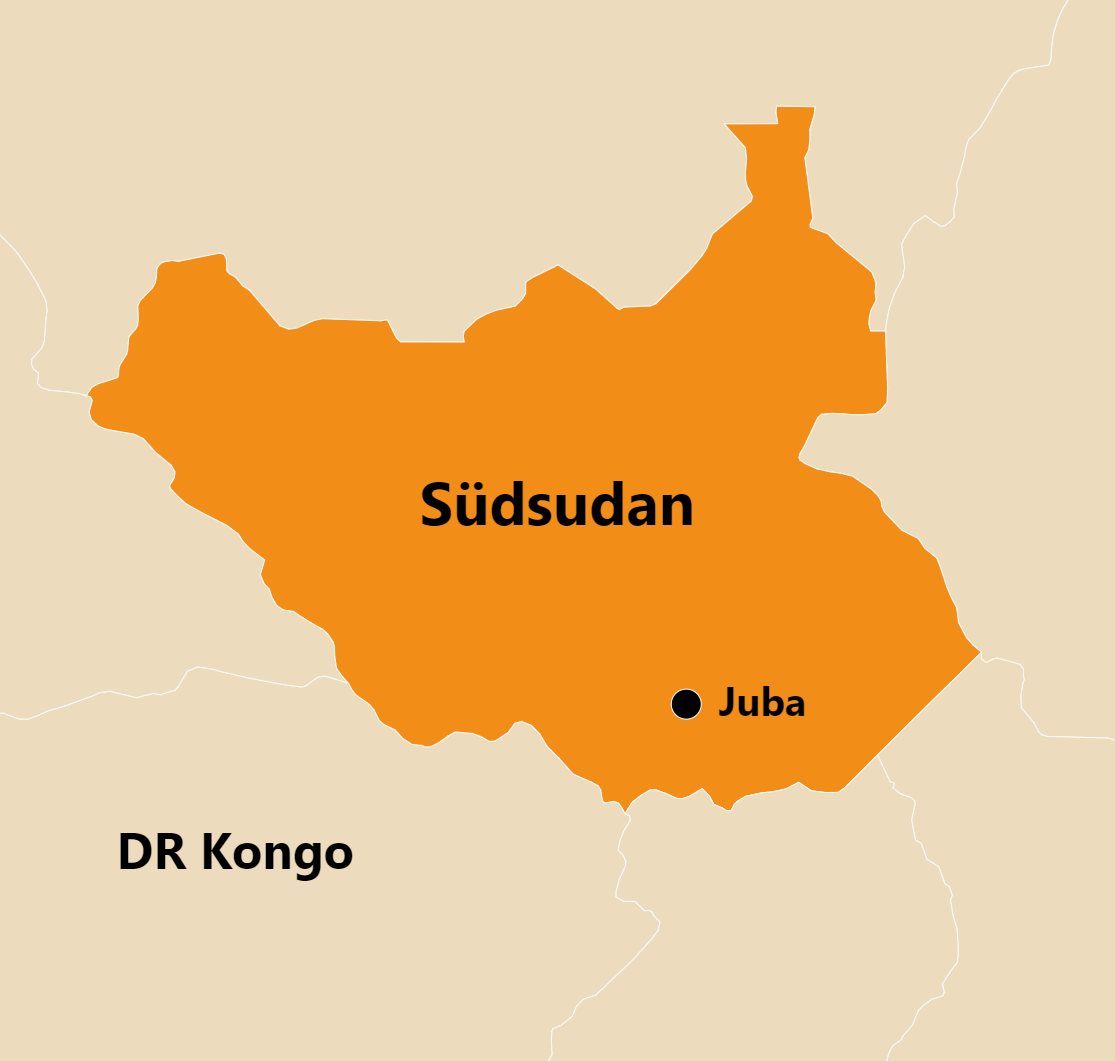
Guliba Florence Hakim
Coordinator South Sudan
► Email

Project Number: 179.1028
The people of South Sudan have been suffering from civil war, conflicts and violent clashes for almost 70 years. The population suffers in different ways. Men die as soldiers, have to flee, become victims and perpetrators at the same time. Women have a different role in the conflict. They try to keep the family together, provide for them and at the same time earn money for the family and for their children's education. As a result, they suddenly become the head of the family in a country where a woman's voice has long been historically and culturally irrelevant.
The project therefore focuses on promoting equal rights for women in leadership positions, but also in education and the economy, as well as overcoming violence against women. Through the creation of safe spaces, the targeted development of economic independence through vocational training and training in leadership skills, conflict resolution and psychosocial support, women and girls are empowered to further develop their role as pillars of society.
Campaign 2025: "Standing up for a peaceful society"
Mission 21 invites church communities to actively participate in the 2025 campaign. Together we promote tolerance, respect and equality - for a sustainable and harmonious future.
South Sudan is predominantly Christian, ethnically diverse and one of the poorest countries in the world. The country has been marked by years of civil war and ongoing humanitarian crises, which have led to profound structural and social problems. Entrenched social norms lead to massive gender inequality and exclusion, particularly with regard to girls' education, their freedom of movement, their limited decision-making power and restricted access to and control over resources. Women's rights and the advancement of girls are often neglected or not prioritized. Young girls in particular are married off before they reach the age of majority, often because the family is dependent on the bride price money. Child marriage and bride price are particularly widespread in rural areas. In addition, estimates suggest that over 80% of women have experienced gender-based violence, including rape, sexual and physical assault (including within marriage), forced and child marriage, and deprivation of education, employment and health opportunities. The socio-economic conditions mean that women and girls are not only marginalized in peace and political processes, but also suffer disproportionately during natural disasters and other crises. The cumulative impact of these multiple crises means that entire communities are constantly exposed to the negative effects. Households headed by women are particularly at risk.
The inclusion of women in decision-making processes at all levels - be it in local organizations or in the government - has so far been underestimated. Peace processes in which women are involved and take on leadership positions are generally more sustainable. This is partly because the process is approached more holistically and not exclusively from a male perspective.
The empowerment of women and girls in all areas. This includes a safe space to exchange ideas, to comfort each other, to build themselves up and to be able to talk about and process what they have experienced. Furthermore, we support them in building up an economic income and in their desire for education.
Marginalized Women and Girls in South Sudan.
In an effort to support affected girls and women, Mission21's partners have initiated several activities ranging from life skills development to economic empowerment of women. In addition to the production of reusable menstrual products, there are activities to grow edible mushrooms - and recycling of tires as well as the production of door mats, flowers, traditional beads, dyed fabrics and sewn clothes, the activities have been successfully implemented and their progress is visible. The women have also been trained in leadership, conflict resolution and psychosocial and trauma management skills to improve their self-reliance, sustainable income generation and social cohesion.

11 million inhabitants
63.6% of population under 24 years old
52% of women in South Sudan were forcibly married before their 18th birthday
CHF 115,500
Mission 21
Protestant Mission Basel
PO Box 270
Missionsstrasse 21
4009 Basel, Switzerland
Tel.: +41 (0)61 260 21 20
info@mission-21.org
Donation account Switzerland:
IBAN: CH58 0900 0000 4072 6233 2
Tax exemption number:
CHE-105.706.527
Donation account Germany:
Savings Bank Lörrach-Rheinfelden
Swift BIC: SKLODE66
BLZ: 683 500 48
IBAN: DE39 6835 0048 0001 0323 33
Account No. : 1032333